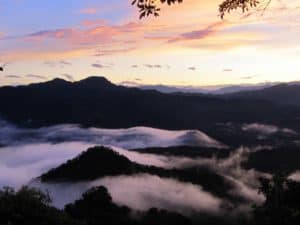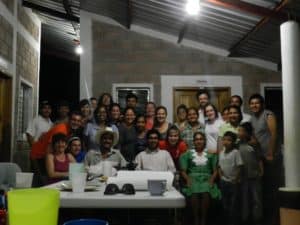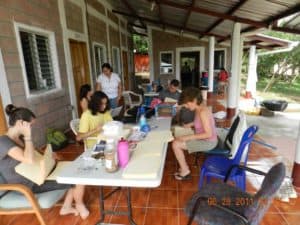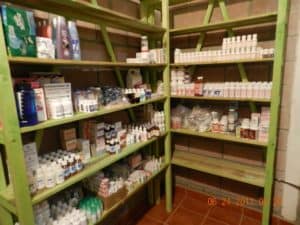Reflections from a brigade member:
“Back now from Santa Lucia and Concepcion for almost three weeks and still taking cold showers, conserving water, and sitting down at the table to eat my meals (with my family!). The inner peace I brought home with me from Honduras is incredible.
I would like to thank Shoulder to Shoulder for providing me the opportunity to experience healthcare in Honduras and share my nursing skills and knowledge with an incredible population.
Many years ago my family was rescued in the mountains of Mexico by a Hispanic family. They cared for us without question until we were safely back on the road. This led to a life long friendship and my father vowing to help educate their family. He did that and so much more. Through this experience I fell deeply in love of with the Hispanic culture and have continued my father’s work years after his death. It wasn’t until two years ago that I became a nurse and knew then that my mission was to provide medical care for the poor especially in Hispanic countries. I think my father would be proud. You see my father was a physician and I did not go to nursing school until after his death when I was 43 years old.
The staff were amazing and I thank them for keeping us healthy and safe. I followed all the advice I read on the web site and came back healthy and in shape thanks to the endless walking uphill. How was it we never seemed to be walking down hill? Incredible!
Our translators are to be congratulated. Daniel, Foncho, and Josh were courteous, mature, and always available for translation needs. Our prepared health promotion was on women’s contraception and each young man handled themselves professionally. I know they went out of their way to make sure we were safe and comfortable. My thanks to all three of them.

I am still in awe of what I experienced in Honduras. There is nothing greater than giving of yourself to others. I respect the mission of Shoulder to Shoulder and hope to return on another brigade. It would be an honor to find a way I can continue to support Shoulder to Shoulder with my nursing skills.”
The Brown University Brigade (July 23rd-July 31st, 2011)
The Brown University Brigade came to us from different areas mostly concentrated in the Northeast region of the United States. They were a diverse and energetic group that came together to partner with the Guachipilincito community. During the short time they were here for they accomplished many goals. One of them was establishing a relationship with the community to create a healthy relationship with the newly constructed health center. This included meeting with the local health committee and visiting people’s homes. Another goal was to see patients in surrounding communities and within the health center. Over the week they managed to see over 300 patients. Lastly, the brigade helped celebrate the clinic’s inauguration at the end of the week. All of this was accomplished while having fun and coming together as a team. The Brown brigade helped to continue a long-term relationship with the Guachipilincito community that will last for many years.

A picture of the whole brigade during a birthday celebration of one of the local employees. As you can see it was a great group.


Reflections from brigade members:
“Thanks all for a very successful Brigade and a momentous launch of the Guachi clinic. As we discussed, it was the great team effort that made it all possible.”
“I am very proud to have been a part of what was accomplished during the brief period in Guachi.”
“The list of ‘what got done’ spans from seeing patients, screening, setting up the charting and data system, setting up the pharmacy, orienting the new nurse, providing screening to an outlying community, and opening the clinic for business. Sorry to have missed the grand opening celebration — hope it went well. As for bringing sons along, would put that in the ‘priceless’ category.”
John Hopkins Brigade Reflection
“I always think of an old adage when faced by seemingly impossible odds of success like the current socioeconomic status of this area of Honduras. It’s the question—How do you eat an elephant, does anyone know how to do that? You simply eat an elephant ‘one bite at a time’.” – Dr. Ed Zuroweste, Assistant Professor of Medicine at Johns Hopkins School of Medicine www.shouldertoshoulder.orgfiles/s2s_ed_zuroweste.pdf


